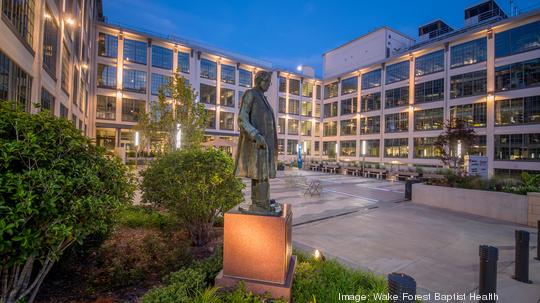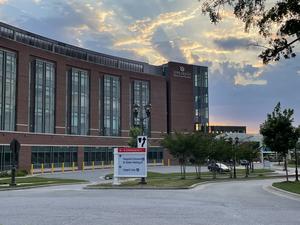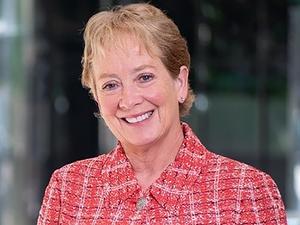
One in four stroke survivors suffer a second stroke, which is often preventable. To decrease this statistic and reduce unnecessary costs, researchers and experts at Wake Forest University School of Medicine and Atrium Health Wake Forest Baptist’s Comprehensive Stroke Center have created a digital health platform for stroke patients.
The platform, called COMPASS-CP (Comprehensive Post-Acute Stroke Services – Care Plan), brings together health care providers and patients and can be embedded within electronic health records.
COMPASS-CP uses health informatics algorithms, combining social and functional determinants of health with clinical, demographic and medication data to create personalized and evidence-based care plans. The plans include links to community-based resources for health management. The platform also allows for integration with remote patient monitoring, such as blood pressure devices and virtual care programs.
The platform was created based on the COMPASS study, led by Wake Forest’s school of medicine and the University of North Carolina. Funded by a $14 million, five-year award from the Patient-Centered Outcomes Research Institute, the COMPASS study was conducted in 40 hospitals and with community partners across North Carolina.
Wake Forest Innovations, the commercialization arm of Wake Forest’s medical school, also created a startup company – called Care Directions Inc. and headed by CEO Douglas Neely – to make COMPASS-CP available to other hospitals and health systems across the county.
“COMPASS-CP allows clinicians to securely receive and easily interpret remote monitoring data, such as blood pressure and physical activity, which helps them, their patients and coaches make timely decisions and adjustments to lifestyle behaviors and medications aimed at reducing the likelihood of patients suffering future strokes,” said Pamela Duncan, professor of neurology at Wake Forest’s medical school and principal investigator of the COMPASS study.
“This is a great example of how our academic learning health system can take research findings and develop solutions to help improve the health of patients right here at home and across the country.”
The COMPASS study compared the health status of stroke patients who received conventional post-hospitalization treatment to that of patients who received comprehensive care based on a model developed by physicians, nurses, therapists, pharmacists and other stakeholders.
Funding to turn COMPASS-CP into a market-ready product was provided by the Catalyst Fund, a WFB program that accelerates the development of life sciences technologies.
“Wake Forest Innovations plays a vital role in our mission as an academic learning health system by supporting the collaboration between industry and our faculty and serving as a bridge to making products sustainable and readily adaptable,” said Terry Hales, senior vice president and executive vice chief academic officer of administration at Wake Forest University School of Medicine.








